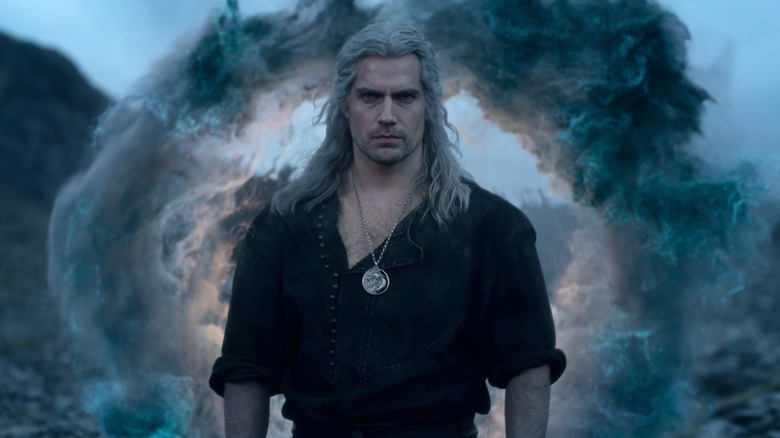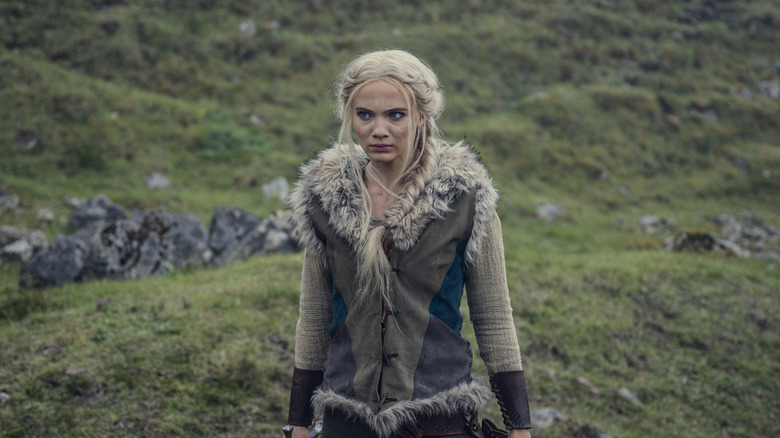The Witcher Season 3: What The Books Can Tell Us About Geralt's 'Reckoning'
Whereas Season 2 of "The Witcher" saw Geralt of Rivia (Henry Cavill) sidestepping the political unrest that plagues the Continent — spending much of that season training Princess Ciri (Freya Allen) in the ways of a Witcher – Season 3 will force the infamous Butcher of Blaviken to finally face this impending threat head-on.
"For years, Geralt has claimed neutrality, shunned politics and publicly asserted that witchers don't have emotions — all to make his life as a killer easier to navigate," explained show creator Lauren Schmidt Hissrich in an interview with Netflix Tudum. "We've seen him battle monsters and monstrous humans; we've watched as he's hardened himself in order to survive. This season, he can no longer do that." As such, Season 3 can be viewed as something of a "reckoning" for Geralt as a character; confronting the consequences of his own inaction in the face of the Continent's impending doom, and finally sorting out his feelings after two seasons of detached angst.
Fans of Andrzej Sapkowski's "The Witcher" book series ought to be familiar with this turning point in Geralt's story, as Season 3 is primarily based on his novel "Time of Contempt," in which Geralt takes a direct role in fighting against the Nilfgaardian invasion. The book tells us that Geralt takes action not because of some higher calling to the Continent, but out of love for Ciri and Yennefer of Vengerberg (Anya Chalotra) and a desire to keep them safe during the war.
Geralt takes action after Ciri and Yennefer become targets of Nilfgaard
As Jaskier (Joey Batey) says in the trailer for "The Witcher" Season 3, "Neutrality has consequences too," something that Geralt learns all too quickly during "Time of Contempt." While Geralt's neutrality has helped him stay alive up until this point, he has also allowed the Nilfgaardian invasion to plant its seeds throughout the Continent with hardly any resistance.
This neutrality has devastating consequences in "Time of Contempt," in which Geralt discovers that both Ciri and Yennefer have become direct targets of Nilfgaard's military campaign. Ciri in particular finds herself in extreme danger throughout the novel, something that is foreshadowed in the finale of "The Witcher" Season 2 when it's revealed that the Nilfgaardian Emperor Emhyr var Emreis (Bart Edwards) is actually Ciri's father Duny.
Thus, "Time of Contempt" forces Geralt to finally take a stand against the Nilfgaardian empire in order to protect the ones he loves — something that directly contradicts the surly, apathetic act that he's adopted throughout much of the series. Geralt's "reckoning" in Season 3 will force him to accept just how much he cares about Ciri and Yennefer and admit to himself that his neutrality is a form of cowardice rather than self-preservation.
This dramatic shift in Geralt's character will place him smack dab in the middle of the fight for the Continent, in which he'll face countless new foes, double-crossing politicians, and the ever-present threat of losing the only family he's ever known.

